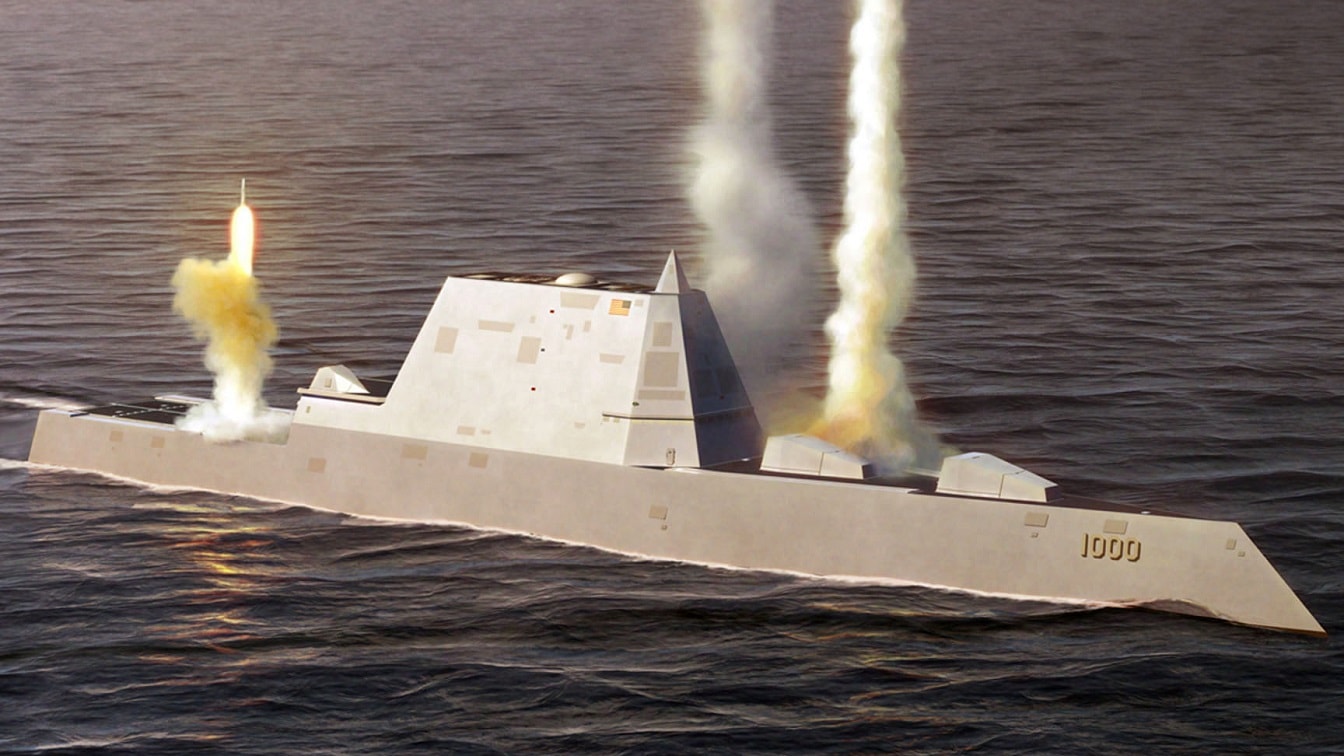The Gods of the Copybook Headings smiled beatifically on the U.S. Navy and Marine Corps last week. For poet Rudyard Kipling the simple headings British schoolchildren copied over and over to learn penmanship in yesteryear expressed eternal truths about life. Truths such as “Stick to the Devil you know,” or “If you don’t work you die.” Flout the precepts imprinted on a copybook’s pages, warned Kipling, and “As surely as Water will wet us, as surely as Fire will burn / The Gods of the Copybook Headings with terror and slaughter return!” In other words, there’s a fateful cost to self-delusion.
Reality endures, and it doesn’t care whether you believe in it or not. Take heed.
Admiral Samuel Paparo gets Kipling’s brand of wisdom, or so it seems. The U.S. Pacific Fleet commander told the U.S. Naval Institute’s WEST 2023 symposium in San Diego that the Navy can no longer make efficiency the North Star of combat logistics. “Operating in uncontested environments,” he observed, “our logistics enterprises operate on business principles.” But when war clouds gather over theaters like the Western Pacific, “we’ve got to think less in terms of maximum efficiency and more in terms of maximum effectiveness.”
Huzzah!
Admiral Paparo’s words marked his—and, I hope, the navy’s as a whole—rediscovery of a bleak, stubborn, permanent verity of naval warfare. Namely, that naval overseers cannot count on having precisely calibrated amounts of supplies delivered from rear areas to expeditionary forces on demand in times of war.
They have to set aside the peacetime U.S. Navy’s cult of efficiency to thrive in wartime. After all, foes such as China’s People’s Liberation Army (PLA) have every incentive to break the U.S. joint force’s distended supply chain across the Pacific Ocean.
The logic of attacking enemy supply routes is impeccable. Disrupting a fighting force’s logistics train starves it of ordnance, fuel, stores, and spare parts, along with support services such as repair and medical care. Draining a force of supplies drains it of battle power, the next best thing to defeating it in action. Deprived of warmaking kit, it vacates the scene of action—leaving its antagonist holding the contested ground by default.
That’s good enough for China. PLA commanders will take the W however they can get it, as indeed they should. Why fight a pitched battle if you can win by assaulting lumbering tankers or ammunition ships?
Now, “just-in-time” supply chains make perfect sense in the business world, where the law safeguards the movement of matériel from one place to another. Honda and Toyota compete in the marketplace, not—one hopes—by bombing rivals’ supply chains. So, barring a calamity like a global pandemic, management can count on factors of production showing up when needed, and in the right quantity. Just-in-time logistics keeps waste to a minimum, holding down costs and boosting profit in the process.
Efficiency is how firms prosper.
But no police force safeguards military movement when war rages. Martial institutions inhabit an entirely different competitive world from business, and that world is inimical to efficiency. To be sure, officialdom might get away with just-in-time practices in tranquil times.
And if tranquil times go on long enough—say, for thirty years following the Cold War—naval commanders might convince themselves that permissive surroundings will last forever. They might come to regard perpetual peace at sea as the natural order of things. And if they succumb to this fallacy, they might redesign the logistics system to deliver the bare minimum of beans, bullets, and black oil to the fleet upon request.
In so doing they spend precious taxpayer dollars efficiently.
In short, efficiency is seductive. Keeping surplus matériel on hand appears wasteful, and lawmakers understandably balk at deliberately funding waste out of the public treasury. But excess inventory is a prime need in wartime, when just enough for peacetime operations is too little in all likelihood, and when too much might be enough.
When an antagonist is doing its damnedest to degrade your supply chain, subtracting vital goods from your armory, only an excess of material support promises a decent shot at having enough of everything where you need it, when you need it.
And staging superior force at the scene of combat at the right time is what field generalship—or admiralship, if that’s a word—is all about.
So an excess of most everything—armaments, fuel and stores, spare parts, repair capability, and on and on—might be enough to offset losses that mount as hostile forces lash out at friendly supply bases, along with transport ships and aircraft that haul goods into the battle zone. This is the new, old reality of sea warfare.
One hopes Paparo succeeds at restoring an older, flinty-eyed, more realistic mindset to the U.S. Navy as it competes strategically and girds for war. As the late, great Anglo-American strategist Colin Gray put it tartly, “history reminds those willing to be reminded that bad times always return, and that every war-free period is actually an interwar era.”
Thus spake the Gods of the Copybook Headings. Abide by their wisdom and flourish; ignore them and suffer the consequences.
MORE: B-21 Raider: China Should Fear America’s New Stealth Bomber
MORE: H-20: China Is Building a New Stealth Bomber
MORE: Is Russia’s Su-57 Felon Stealth Fighter a Total Bust?
Author Expertise and Experience:
Dr. James Holmes is J. C. Wylie Chair of Maritime Strategy at the Naval War College and a Nonresident Fellow at the Brute Krulak Center for Innovation & Future Warfare, Marine Corps University. The views voiced here are his alone.

